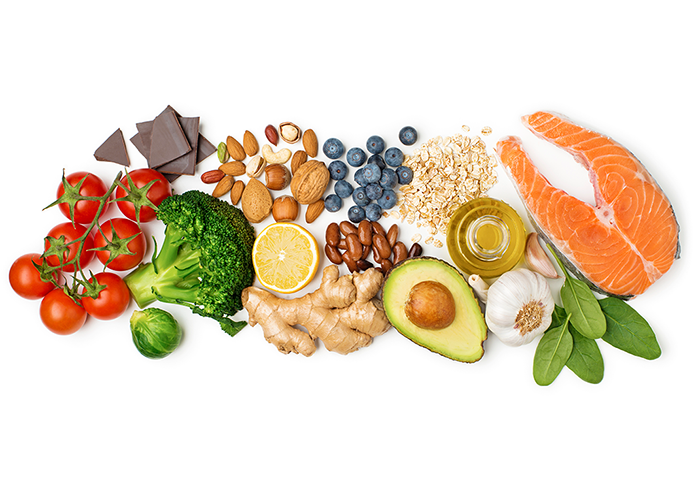By Deborah Jeanne Sergeant
Busyness, access to convenience foods and lack of healthful options all add up to a dietary disaster for many college students. But with a little planning, you can eat healthfully while in college, according to local experts, who share some tips with College Life.

Tips from Kathy Dischner, nutrition and community food security issue leader and registered dietitian for Cornell Cooperative Extension Onondaga County:
• “Don’t let yourself get over-hungry, thinking ‘I’ll eat hours from now’ because you’ll make poor food choices.
• “Stoke the fire all day with smaller, mini meals of 300-400 calories instead of starving and overloading at one meal.
• “Buy food that is fast and convenient and still healthful, like low-sugar, Greek yogurt, cheese with wholegrain crackers, fruit, trail mix and hummus. Meals and snacks with complex carbohydrates, high protein and good fats provide nutrients, give you energy and help you feel full longer, like eggs scrambled with diced vegetables and a small amount of cheese wrapped in a wholegrain tortilla.
• “If you’re facing a vending machine and starving, pretzels are better than a high sugar candy bar. Peanut M&Ms at least has smaller amounts of sugar comparatively.
• “Have water be your go-to beverage, even when you’re out partying. Drink water between other drinks. Imprudent beverage choices is one of the biggest reasons why students gain weight. They pack mindless calories in part because when we drink calories, we don’t compensate by eating less whole food.”

Tips from Laurel Sterling natural health educator and a registered dietitian practicing in Canastota”
• “Scout out the environment to check out all options and develop a plan. More healthful and lower to moderate calorie options include foods that are baked, broiled, grilled, steamed or roasted. Avoid foods swimming in butter or sauces. Salad bars can offer great choices. Go easy on bacon bits, cheese, croutons and other high calorie add-ons. Squeeze lemon and pepper over salads first for added flavor, then drizzle dressing or olive oil. Grab fruit for dessert or take along for a snack later.
• “If unhealthful choices are easily accessible, we will eat them; also according to Brian Wansink, the larger the container of food that we are faced with and the more diverse the options, the more likely we are to overeat.
• “Nothing we eat or drink substitutes for high quality sleep. Lack of quality sleep also leads to weight gain along with increased risk for increased blood pressure, immune problems and poorer blood sugar control in susceptible individuals.”

Tips from Jane Burrell Uzcategui, registered dietitian and instructor in Public Health, Food Studies and Nutrition at Falk College at Syracuse University:
• “A lot of students think they’re too rushed or that they don’t need to eat during the day. They need to plan to eat. There are lots of choices like wraps, salads, rice bowls and things that students can select items to go in it. Try to get a good source of lean protein like chicken, bean burrito or tuna. Add in veggies and think about side items. Go for fruit, trail mix, cut-up veggies and hummus, not just a bag of chips.
• “Try nutrition bars that have whole foods like Kind Bars versus chewy granola bars that are mostly sugar. You can make your own trail mix with dried fruit and nuts. They won’t go bad.
• “If you’re caffeinating to stay up late, you have a hard time falling asleep and wake up groggy. Then, you don’t have time to eat, so watch the caffeinated drinks. Green tea has some caffeine and has anti-oxidants. Energy drinks are the worst. They’re full of sugar.”












